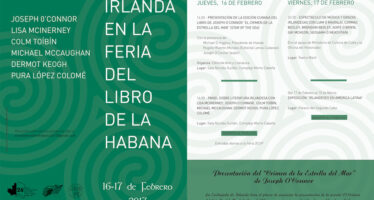Unravelling the Truth: Freedom of Press in Turkey
![]()
EGEMEN BA?I?, GMF
The recent case involving the detention of some Turkish journalists, who were charged by Turkish prosecutors with crimes unrelated to their professional journalism functions, have brought the question of freedom of the press in Turkey to the forefront.
In their quest for truth, journalists, like statesmen, need to fight against the clichés, rather than use and abuse them. Therefore, I would like to ask you to look into the whole picture, beyond the arrests.
For more than two years, Turkey has been investigating the complex “Ergenekon Case,” which aims to reveal the deeply enrooted plots against the democratic system in Turkey. The case is being prosecuted by independent prosecutors and judges, who frequently emphasize that no outside force, including the government, can influence or obstruct them. In fact, the prosecutor of the case has been recently removed to be promoted to the deputy chief prosecutor for Istanbul by the Higher Council of Judges and Prosecutors, which is an independent body.
From now on, a new prosecutor will continue to be responsible for the Ergenekon case, which indicates that the Higher Council of Judges and Prosecutors tries to safeguard the objectivity of the legal process and the supremacy of the rule of law. As in any democracy, the independence of the judiciary ensuring the checksand-balances of the system is sacrosanct.
Since independence of the judiciary is unquestionable according to universal norms and principles, the issue at stake should be discussed within the framework of this principle. No outside force, including the executive, can or should interfere with the merits of the case or seek to influence the prosecutors. If the independence of the judiciary is unquestionable in the EU or the United States, then it is equally so in Turkey.
The reform process of our judicial system is continuing to evolve in accordance with contemporary universal legal norms. Through the Judicial Reform Strategy adopted in 2009, major steps have been taken to create an efficient judicial system. Thus, our government, as any other democratic government, is against any violation experienced during judicial proceedings. If the executive were to somehow interfere with the ongoing case, this would constitute a major infringement, vis-à-vis the principle of independence of the judiciary.
In this particular case, despite the expression of concern from the highest echelons of the state on the arrest of the journalists, the prosecutors have clearly stated that they have evidence that links the journalists to the Ergenekon Terrorist group. The judiciary also maintained that the arrest is not related to their professional activity, the books or articles that they have published or plan to publish, and, least of all, to their opinions.
The indictment of the journalists, which the prosecutors say they will release in the coming days, will clarify their point. We need to wait for that, while continuing to follow the details of the case and to ensure that the rights of those under arrest are protected.
The issue here is not the big bad government trying to silence the press. On the contrary, Turkey, under the present government, has come a long way from the arrests, torture, and disappearance of journalists, particularly during and in the aftermath of the military coups. In the last decade, major steps were taken to improve the freedom of press since then, both to align our laws with the European Union and, more importantly, to improve the rights and freedoms of our citizens. Freedom of expression and press are safeguarded by the constitution and other relevant legislation in Turkey.
Only ten years ago, pronouncing the mere word “Kurd” in Turkey would be enough to get anyone in trouble, let alone speaking Kurdish in public. Today, the state-run TV has Kurdish and Arabic channels broadcasting 24 hours a day. One of the first priorities of our government when it came to power was to have a new and more liberal press law. Under the new law, archaic sanctions such as confiscating printing machines were halted. Corresponding changes were made in the constitution and relevant laws that enhanced freedom of expression and press freedom.
In seven out of eight of the EU Harmonization Packages adopted between the years of 2002 and 2004, major legal improvements had been made concerning freedom of expression. The Turkish penal code was amended in July 2005, taking a more liberal approach on freedom of expression and media. The articles on freedom of expression were improved significantly. In order to enhance the awareness of judges and prosecutors, the Ministry of Justice issued a Circular reiterating that investigations pertaining to the limits of freedom of expression shall be made in accordance with the jurisprudence of the European Court of Human Rights and other international human rights standards.
The Turkish Penal Code was further amended on May 8, 2008 in order to overcome certain difficulties in implementation. Article 301 of the Turkish Penal Code criminalizes insulting “Turkishness,” but according to the revision of the article, the minister of justice must give permission for any investigation to proceed. After the introduction of this amendment, there has been a substantial decrease in the number of cases opened. The minister of justice approved investigations in only 10 out of 241 case applications between January 1, 2010 and May 31, 2010.
Besides, seminars have been organized for the judges and prosecutors in order to facilitate the implementation of the comprehensive legal amendments concerning freedom of expression. The Secretariat General for EU Affairs with the collaboration of the European Commission has organized international seminars on the “Freedom of Expression,” where government representatives, civil society, and media representatives had an opportunity to exchange their views freely without any restrictions.
Last year, the ministry of justice formed an internal working group with the participation of all relevant parties including media representatives, representatives of press associations, academics, judges, and prosecutors to study the shortcomings that were presented in some international reports related to the freedom of expression. The working group discussed certain articles of the penal legislation on freedom of press.
Based on this study, a draft law on freedom of expression and the media has been prepared by the ministry of justice with the contribution of members of nongovernmental organizations and academics. The draft law aims to ensure proper implementation of some provisions of the penal code with a view to bringing them in line with the case-law of the European Court of Human Rights. It is currently on the agenda of the parliament.
We are determined to enhance the scope of freedom of expression through the means of participatory democracy. We know very well that free speech and an independent media are the fundamentals of an advanced democracy. To ensure this, we have to reform not only the legislation, but also the mindset of all professionals working to safeguard these freedoms. This requires great effort and time. But we are determined to further allocate our energy and resources on this issue and continue the reform process, which is not only crucial for our path of European Union accession but for consolidation of the Turkish democracy.
Could these be the policies and actions of a government that rejects press freedom and freedom of expression? Let us not be confined by one-sided arguments of those who shed crocodile tears on “the freedom of the press” and miss the complete picture. It is of pivotal importance to look into the debate from various perspectives. When Italy carried out its Gladio Operation, Prosecutor Felice Casson uncovered a complicated plot that involved a former prime minister, thirty generals, two media bosses, and thirty journalists. This process is a controversial and difficult one but necessary for the democratic and anti-corruption forces of that European state. In Turkey, the Ergenekon case is just as crucial. Its true focus, which is to strengthen the Turkish democracy, should not be lost. When the Ergenekon case is solved, democracy in this country will take a great leap forward.
»» Egemen Ba??? is the Turkish minister for EU affairs and chief negotiator. He was first elected to the Turkish Parliament in 2002 as a deputy of Istanbul. He was appointed as minister for EU Affairs in January 2009 and has been working for full membership negotiations of Turkey since. The views expressed here are the views of the author alone and do not necessarily reflect the stance of the German Marshall Fund of the United States.
Related Articles
BOOK. ‘The Design of Everyday Life’ by Adam Greenfield
![]()
Last June 2017, Verso (formerly New Left Books founded in 1970 by the staff of the New Left Review) released ‘Radical Technologies – The Design of Everyday Life’ by American writer, Adam Greenfield
Abre sus puertas la Feria Internacional del Libro de la Habana
![]()
Este 9 de febrero inicia sus actividades la XXVI edición de la Feria Internacional del Libro de La Habana
Crisis y lucha política en Gramsci
![]()
Una lectura desde el surAldo Casas herramienta.com.ar Ponencia presentada el 1° de noviembre de 2003 en San Miguel de Tucumán,




